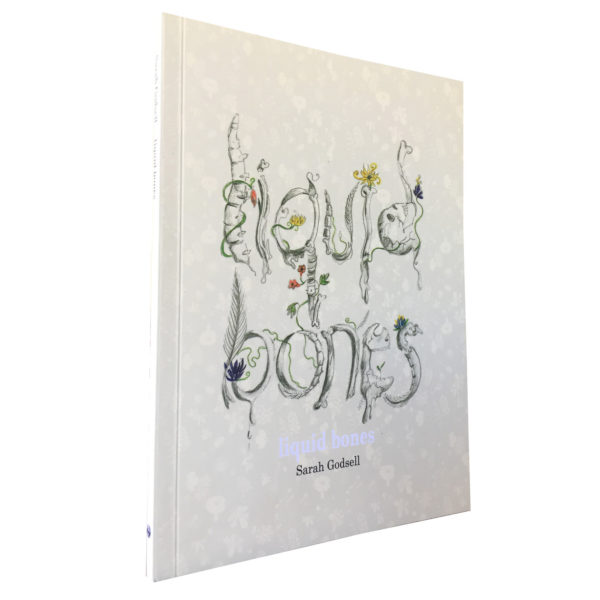
“this country of blood”
It is just under a year since Impepho Press published Sarah Godsell’s second poetry collection, Liquid Bones. It is October, Spring. In this “summoning season change” we find ourselves, as a country, as femmes, as individuals, as Africans, barely surviving the wave of femicide and xenophobic violence that has torn through South Africa. As Godsell intuits in her collection, the bones are talking, and this time, we cannot escape what they are telling us. The violence of complicity rips “off the skin we tent ourselves in” and reveals what we have always known: that this “country made of singing” is also a “country of blood” where “if I spit / your blood comes out my mouth.” In Liquid Bones, capitalist hetero-patriarchy has burned itself into our psyche, punctuating its ultra-violence with the bodies of the poor, children, and femmes. We read it over and over again, hoping that somehow the message will change.
It does not.
When I first read this collection in 2018, my feeling was that Godsell was reclaiming the space she carved out in her first collection, Seaweed Sky, widening it so that she could share it and hold space for others. It felt a generous, flyingalive thing, and, in the wake of Fees Must Fall and on-campus violence, familiar to Godsell as a lecturer in Johannesburg, her poetry emerged as a weapon and a shield, a battleship as well as a secluded garden for reprieve. And play. Rereading it now, I find it difficult not to see each and every poem as being an act of precognition. It could be, perhaps, symbolic of how cyclical and countrywide our violence—both private and public—is. But there is a singularity to Liquid Bones that bleeds the poet’s words fresh.
Effortlessly melding the political with the private, Godsell is sensitive to her subject matter to the point of possession. Ever-playful, the poet experiments with rhythm and rhyme, drawing from everyday scenes: bedrooms, clinics, classrooms, and fields. As she confronts the inherent cruelty of our socio-economic inequalities, racisms, homophobias, Afrophobias, she also draws us into a world where webbed creatures inhabit dry land. Where we don’t bother burying our dead because we are “so busy sweeping the dead flies from the floor” that we have no time to deal with “the body attracting the flies in the corner.” Once there, she demands a collective reckoning, with our past selves and the present we are waging a war against, of which we are growing tired of fighting for. Her lines intuit and beckon, and her rendering of place and space reminds me of these lines from Ntate Keorapetse Kgositsile’s poem, “In the Naming”:
We now know past any argument
that places can have scars
and they can be warm
or cold or full of intrigue
like faces.
In the manner of a prophet returning from her dreams, Godsell breathes life into the worlds of the page, bringing faces and places—our bleeding cities, our weeping countryside—closer to us. Godsell is a poet who loves language and her delight is tangible: there are poems so song-like they become like skins. Something you want to crawl inside of. Countering the limits of form, the poet bears herself into the currents of her poetry, her words a shoot piercing the watery ceilings of anguish and despair.
“What do I wear on Heritage Day?”
In a poem that reads like a reckoning with white ancestors, “Nongqawuse and the New People” brings about a noticeable shift in the tone of the collection. In this line, Godsell sharpens her teeth: asking White South Africans one of the central questions of Liquid Bones. With painful honesty, she details our litany of sins in this “map of stolen land”: how we wear “high-heeled shoes / made of bones / of slaves” and “necklaces of bullets / collected from bodies” and a “veil of screams.” In “mimosa,” a poem dedicated to Godsell’s friend, spiritual kin and publisher, Vangile Gontsho, Godsell writes, “What words are used for ‘frontier’ wars? Loss loss loss. / Magic, Mlanjeni. Muthi.” Countering this with “I was born with / a tamed terror in me,” Godsell suggests that we “Build Us New Cities,” ones “Founded on heartbeats of girl-mothers / nightmares of warghost fathers / we no longer run from.”
In these lines, Godsell edges her poetry towards a vision of a new land. A suggestion that, perhaps, this is how we should tell our stories. How we should tear down empire.
“Feverburning, Feverbright”
In the first stanza of the titular poem, Godsell writes, “the devil has gone neoliberal” and “He is coming after each of us.” following this with [he] “sells us a dream of a world we can change” and “we can, at least, be happy. If we work.” The argument is clear: there is no digging up old bones or rescuing our democracy or winning any of this: unless, of course, we are able to “hold hands” and “notice.” And, of course, we don’t. “The flowers start to wilt, then die. / we push forward.” We leave our fallen. We put their suicides and their overdoses and their broken bodies down to a lack of endurance, to mental health. Leaving our fallen, “we endure,” but by the time we have advanced, breaking our ties to home, land and family (family being a many-wondered thing), we are alone.
Yet even in this pain, there is beauty. Flowers, then, are an apt motif: a startling reminder of the redemptive power of nature and being connected to our earth in a very literal sense. Through Godsell’s saturnine lyricism, the frail loveliness of the human spirit shines through the carnage of bodies and minds. From being written into the poems themselves—“dressing each-others wounds / planting flowers in them”—the flowers blooming between bones, nourished by marrow, in the cover art, blossoms, like other natural imagery, remind us that the devil “will not win the sky.”
In a collection that employs a range of styles, from free verse to prose poems, the poet’s use of language expands the ordinary moment to plump fecundity. Lines swell and open themselves to “the possibility of movement.” In “Mercury to Gold,” a sick child is “feverburning,” her eyes “feverbright.” The child drops a thermometer. Her parents “took off their gold wedding rings / to coax the mercury-animals / Together ? into a teaspoon.” The deftness with which Godsell weaves beauty into the more violent “poemtrees” in her collection is breathtaking. Consider these lines from “breathe not,” a poem about suicide: “light filters through water / everything is dilute” and “we will trace you in the sky / with our tongues / in the night.”
Then there is the equally-beautiful poem titled “The PebbleMoon Song,” a gasp-worthy title. Employing just the right amount of whimsy, one grows aware that while Godsell is battle-weary, fatigued, even, she is still fighting. And fight she does, with us, and for us, compelling us, always to keep “your wonder.” With this childlike wonder, Godsell destroys the notion of the grown-up, writing that “Somewhere there are magic wands. / Here there is wine. / And song.” She dances in these lines and we are invited to enjoy this celebratory mood.
“I am lonely for a revolution”
In “For the Guns,” Godsell condemns the weaponisation of students’ bodies on university campuses. “The guns hear / They crawl out of themselves / leaving the police with their metal carcasses.” We are reminded that at our institutions of higher learning, “guns weep / because the policemen will not,” while brave students—“the guerrillas”—are “Choosing weapons” and “Holding the songs in their throats.”
Contrasted with scenes of collective protest are intimate moments. In “tiny flying,” we observe the sacred rituals of urbanity. In this poem about a nocturnal miscreant, the mosquito, the poet offers us at once a moment of reprieve—as the narrator’s mother “[squashes] tiny monsters”—as well as a meditation on the unifying smallness of the great ordinary. These rituals of normalcy, where “there are smears of dead mosquitoes on my ceiling,” dominate our lives, and it is hard not to read more into this line: “smacking them / dead / squashing tiny monsters.” In South Africa, there are many monsters. Some, we can slay: mosquitoes, thunderstorms, Mondays.
In “Fugitive Pieces,” Anne Michaels writes that “the German language had annihilated metaphor, turning humans into objects.” In echoes of Adrienne Rich, Godsell demands a collective reckoning, underscoring the power of art in this project of restoring humanity, of which poetry plays such a vital role. Poetry affords us a language in which to “dream of a world we can change,” one where the wounded, warriors and witches share the page; where no person is formed without the “spit” and “dust” of the one who birthed her, or died to make her living a possibility. This is South Africa, our land, a country “made of singing” where our histories are shot through with “screaming across the seas.”
Breathing is not a measure of life; joy is. There is a sense in this collection that if all becomes impossible, the reader’s choice to leave is respected, too. The poet grants us safe passage, telling us to “Go with snake-familiars” in our bellies and “calligraphy” on our map. Most importantly, we must play, and play, in this collection, means art-making, celebration, self-expression, and delight in the sensual, as Godsell subtly reminds the reader that they needn’t sacrifice playfulness at any altar. Protest is no church—it is movement—and it demands that we skip and hopscotch and remember our childlikeness: this is the light that will save us when fighting numbs us.
Tender, incisive, and ever-warming, Liquid Bones is a molten epitaph for the bleeding ghosts that haunt our present. As we tear down and rebuild and monumentalise our ever-growing, all-consuming, hungry, angry, frightened country, and her zombie-eyed democracy, we know that any “attempts / to avoid, Pompeii-like, leave us atrophied.”
ABOUT THE WRITER
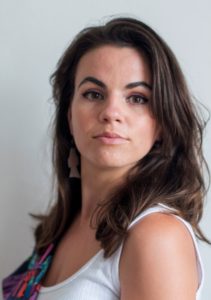
Megan Ross is the author of Milk Fever (uHlanga Press, 2018). She was born in Johannesburg in 1989 and has worked as a writer, journalist, graphic designer, and stylist. Megan won the 2017 Brittle Paper Award for Fiction and was a runner-up for the Short Sharp Award and the Short Story Day Africa Prize. Her bylines include New Frame News, Mail and Guardian, Catapult, New Contrast, GQ, and Glamour magazines. When she isn’t writing, Megan is creating book cover art for award-winning African authors, swimming in the Indian Ocean, and playing football with her son. She lives on the Wild Coast, and is working on her first novel.


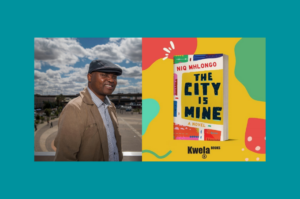
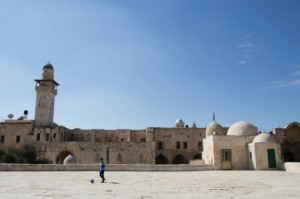

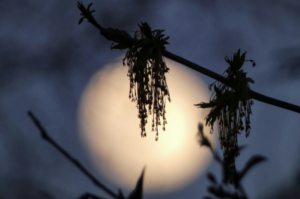
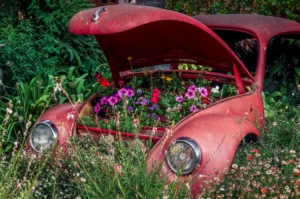
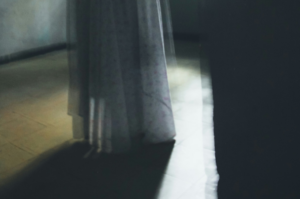

A brittlepaper review of Sarah Godsell’s ‘Liquid Bones’ – impepho press December 09, 2019 06:34
[…] Source: https://brittlepaper.com/2019/12/this-blood-that-not-even-the-mountains-can-hold-megan-ross-rereads-… […]